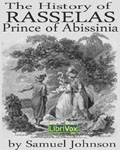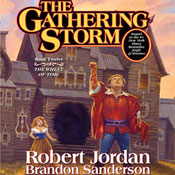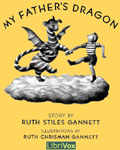
 The Lies of Locke Lamora
The Lies of Locke Lamora
By Scott Lynch; Read by Michael Page
18 CDs – Approx. 23 Hours [UNABRIDGED]
Publisher: Tantor Audiobooks
Published: 2009
ISBN: 1400110513
Themes: / Fantasy / Crime / Magic /
An orphan’s life is harsh—and often short—in the island city of Camorr, built on the ruins of a mysterious alien race. But born with a quick wit and a gift for thieving, Locke Lamora has dodged both death and slavery, only to fall into the hands of an eyeless priest known as Chains—a man who is neither blind nor a priest. A con artist of extraordinary talent, Chains passes his skills on to his carefully selected “family” of orphans—a group known as the Gentlemen Bastards.
Here’s the one sentence summary I’ve been using to describe The Lies Of Loche Lamora:
Like Oliver Twist in Lankhmar.
In a way this is the anti-Harry Potter book. It’s about a school for thieves and not magicians. It doesn’t have heroes and villains as much as it has profligate crooks and despicable liars. Our protagonist is the titular Locke Lamora, a young wastrel in the city of Camorr. He’d starve or be sold into worse slavery had he not been born with a certain larceny in his heart. Camorr, the city itself, too is a terrific character in this book, being a vividly described assemblage of various fantasy cities Lankhmar, Arenjun, and real life historical ports like late medieval Venice. Under careful tutelage, Locke and his companions grow into formidable talents, practicing their art in a series of ever more elaborate con-games.
When I was a kid playing Dungeons and Dragons I almost always played the “thief” class. Magic users always seemed lame to me, clerics were like magic users but with religion (which seemed to me like a third wheel for actual role playing) and fighters were boring. Sure you’re tough – and that’s good for fighting, but that’s it. I always thought there was a little too much fighting in D&D. My favourite part of role playing was the part in the tavern, before the quest proper really got started. I was inspired by Baggins burglar clan – but thought they had it too damn easy with the magic ring of theirs. Later in life I’d see movies like: The Sting, The Grifters, and Harry In Your Pocket. I’d read books like: The Green Eagle Score and The Girl With The Long Green Heart. Those stories all had setups I really dug. I liked characters who lived by their wits. Characters who, without being either the best shot, or the fastest draw, without having the biggest muscles or fastest legs could make the getaway with at least half a sack of gold in hand. And that’s why I like The Lies Of Loch Lamora so much.
The Lies Of Locke Lamora is rich with detail. I have a hard time conceiving just how much time Scott Lynch put into the world building. The magic system is based, smartly, around the “language” or “name” model of magic. Words have power. Knowing the “true name” of something or someone gives you power over it. Indeed, even in real life language is almost like magic. I can say to you something like: “The blue horse with the rainbow flavoured fedora is clambering slowly up the valley’s cool red roof” and some sort of weird imagery is suddenly **poofed** into your mind. I can buy into this kind of magic. It’s the same kind of magic that J.K. Rowling puts into her villain names: Just think about it, Voldemort and Malfoy, (“underground death dweller” and “bad foil”). It’s too bad Rowling didn’t have the teachers at Hogwarts teaching this magic language magic system instead of the hodge-podge it has – I might have cared more. So back to the book at hand, magic plays a fairly central role in the plot of The Lies Of Locke Lamora, it’s rare, and doesn’t enter into the novel until quite late. Other furnishings in Lynch’s Fantasy landscape include substitution. Instead of glasses we get “optiks” and instead of chemical we get “alchemical.”
Thinking back, narrator Michael Page did employ a fairly wide range of voices. And there are quite a few characters for him to bring to life. Several of these age over time. Some narrators take over the text, Page is not one of them – he delivers the lines as appropriate, so that for the most part I didn’t notice his performance. If there are any laments I have about this excellent audiobook they are very few. One would be it’s length, it is a tad long. This is a sin that virtually every Fantasy novel is guilty of these days. It held my attention, but there were certainly a few scenes that could have been easily summarized without losing one whit of the novel’s otherwise careful pacing. Another lament, the Bantam Spectra paperbook edition of this book includes an excellent map of the city of Camorr. Modern audiobooks never include maps as a supplement. So neither does this Tantor edition. This is a mistake. Any novel assumes a certain familiarity with geography but Fantasy novels, especially of this kind, are burdened with creating a new world from scratch. An audience that is unfamiliar with its geography is less likely to be able to follow the action spatially. Several times during my was listening I wished I had a map of the city of Camorr at hand.
If you do get this audiobook I suggest that you print out a copy of THIS MAP over on ScottLynch.us.
Posted by Jesse Willis




 The Coming of Conan the Cimmerian
The Coming of Conan the Cimmerian There are a lot of new audiobooks showing up on LibriVox every day of the week. This means I get to pick and choose amongst a vast roster of titles that I could possibly tell you about. One that I was not planning to post about was a 1759 Fantasy novel by Samuel Johnson. I had nothing against Johnson. I just hadn’t read any of his books. Sure I knew he had written a dictionary, but it wasn’t one of the ones that I had read. The problem really was I just didn’t know enough about Johnson to be interested in his novel. Frankly, the first thing that came to mind when I thought of Dr. Samuel Johnson was how great a character he was in the
There are a lot of new audiobooks showing up on LibriVox every day of the week. This means I get to pick and choose amongst a vast roster of titles that I could possibly tell you about. One that I was not planning to post about was a 1759 Fantasy novel by Samuel Johnson. I had nothing against Johnson. I just hadn’t read any of his books. Sure I knew he had written a dictionary, but it wasn’t one of the ones that I had read. The problem really was I just didn’t know enough about Johnson to be interested in his novel. Frankly, the first thing that came to mind when I thought of Dr. Samuel Johnson was how great a character he was in the 
 Tor appears to be going all-out in its promotion of the 12th installment of Robert Jordan’s Wheel of Time series, The Gathering Storm, co-written by Brandon Sanderson. In partnership with
Tor appears to be going all-out in its promotion of the 12th installment of Robert Jordan’s Wheel of Time series, The Gathering Storm, co-written by Brandon Sanderson. In partnership with 
